AFTER THE FACT
‘It will never be the same’ — life after climate displacement, and why we need to prepare communities
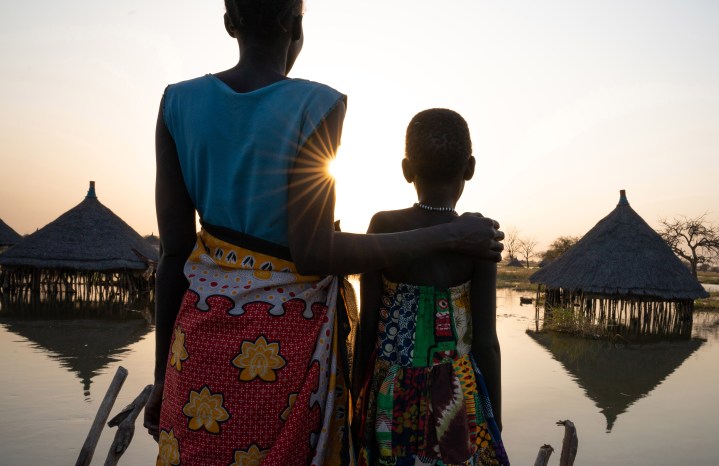
In the next 30 years, it’s predicted that 96 million children will be displaced by river floods alone. But for those who have been displaced, the initial shock of losing their home is just one part of the challenges they will face. We need to prepare.
“I had a home, I was living freely.
“Then the floods came and took away my independence,” Nomandla Nqanula told Daily Maverick more than a year after her home in the Quarry Road informal settlement was washed away during the devastating floods in KwaZulu-Natal in 2022.
Nqanula is one of 40,000 who were displaced by the flooding that also took nearly 500 lives last year. But what happened must not be forgotten any time soon — because it will happen again.
A new analysis released last week by Unicef predicts that 96 million children will be displaced over the next 30 years because of river floods alone.
The analysis, Children Displaced in a Changing Climate, also revealed that weather-related disasters caused a staggering 43.1 million internal displacements of children in 44 countries over six years, 2016–2021, equivalent to approximately 20,000 child displacements a day.

A woman drags a barge of timber through flooded fields in Bentiu, Unity State, South Sudan, February 2023. (Photo: Unicef / Mark Naftalin)
Unicef analysed data from the Internal Displacement Monitoring Centre (IDMC) to determine historical child displacements linked to weather-related disasters and projected the estimated risk of child displacement in the future using IDMC’s risk model.
“Although weather events, such as floods and storms, are natural phenomena and a single event cannot be directly attributed to climate change, there is widespread consensus that human-induced climate change is affecting the frequency, intensity, geographic range, duration and timing of extreme weather events,” the report acknowledged.
Read more in Daily Maverick: Extreme weather on the way — and events like this are likely to become more frequent
“Often when you see climate change, you see the immediate impacts of a flood on a community. You’ll see houses washed away or land washed away,” said Cathy Sutherland, a professor in the School of Built Environment and Development Studies at the University of KwaZulu-Natal, who works with communities in Durban to co-produce knowledge to create climate adaptation strategies.
“But what we’re seeing after the 2022 Durban floods as time moves on, you see the really significant impacts of those floods on communities, because the breakdown in place identity and social cohesion has very long-term effects,” she said
Unicef executive director Catherine Russell said: “It is terrifying for a child when a ferocious wildfire, storm or flood sweeps into their community.
“But for those who are forced to flee, the fear can live on. Fear of whether they will return home, resume school or be forced to move again. Moving from immediate danger may have saved their life, but it also disrupts it. As the impacts of climate change escalate, so too will climate-driven movement.”
The report found that children are especially at risk of displacement in countries already grappling with overlapping crises, such as conflict and poverty, where local capacity to cope with any additional displacements of children is strained.
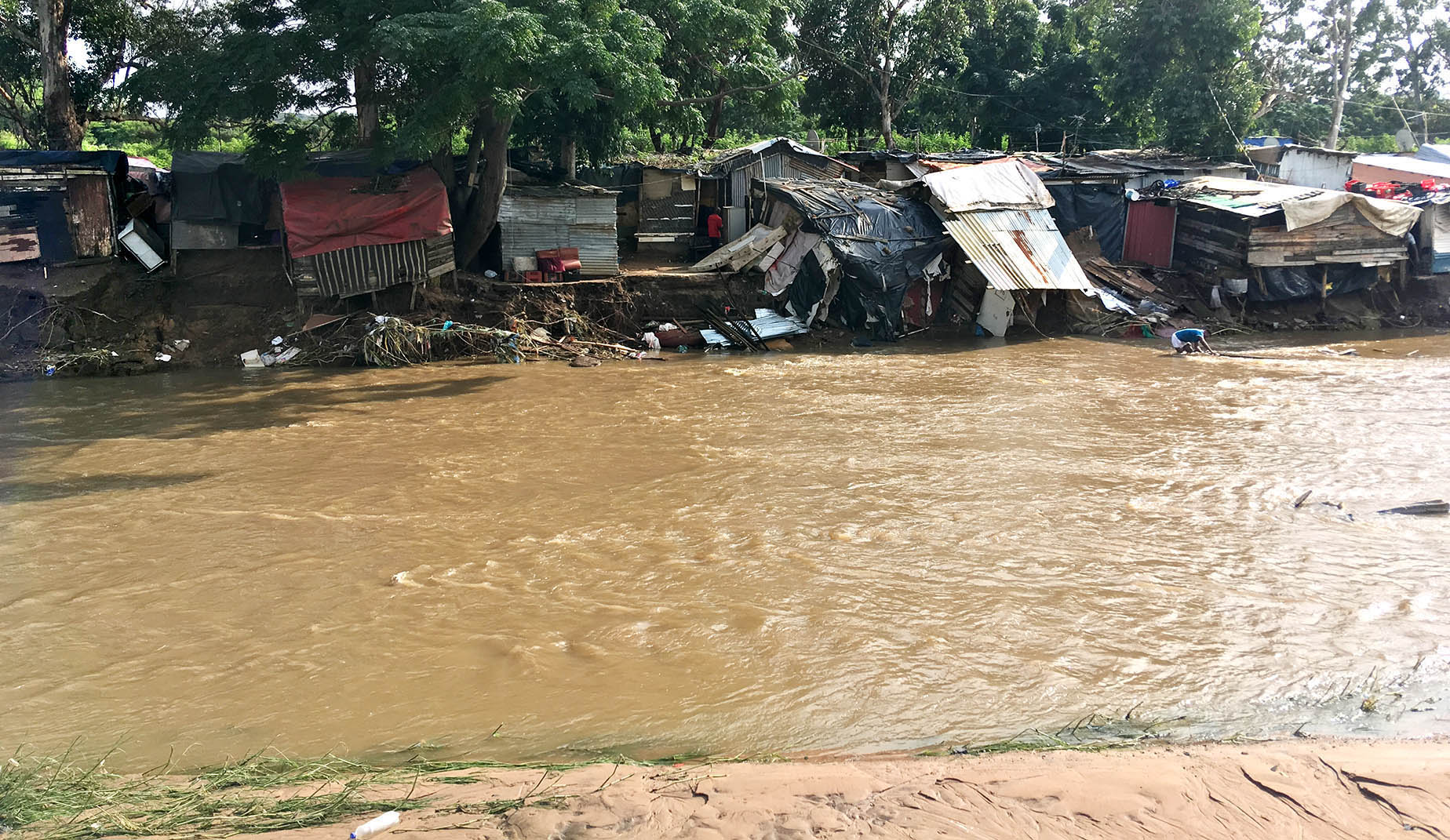
Informal dwellings at risk of collapse on the banks of the Palmiet River, after the 2019 floods. (Photo: Cathy Sutherland)
Displacement disconnect
Seventeen-year-old Anai Majer was displaced by the floods in Bor County, Jonglei State, in South Sudan in 2021. This part of the country is a water basin that’s part of the huge Sud wetland, so it is susceptible and very prone to flooding. There are no proper flood-mitigating measures such as dykes, canals or water reservoirs to store excess water.
The Unicef analysis found that South Sudan and Somalia experienced the greatest number of child displacements from floods, relative to the size of their child population — about 12% in South Sudan and 11% in Somalia.
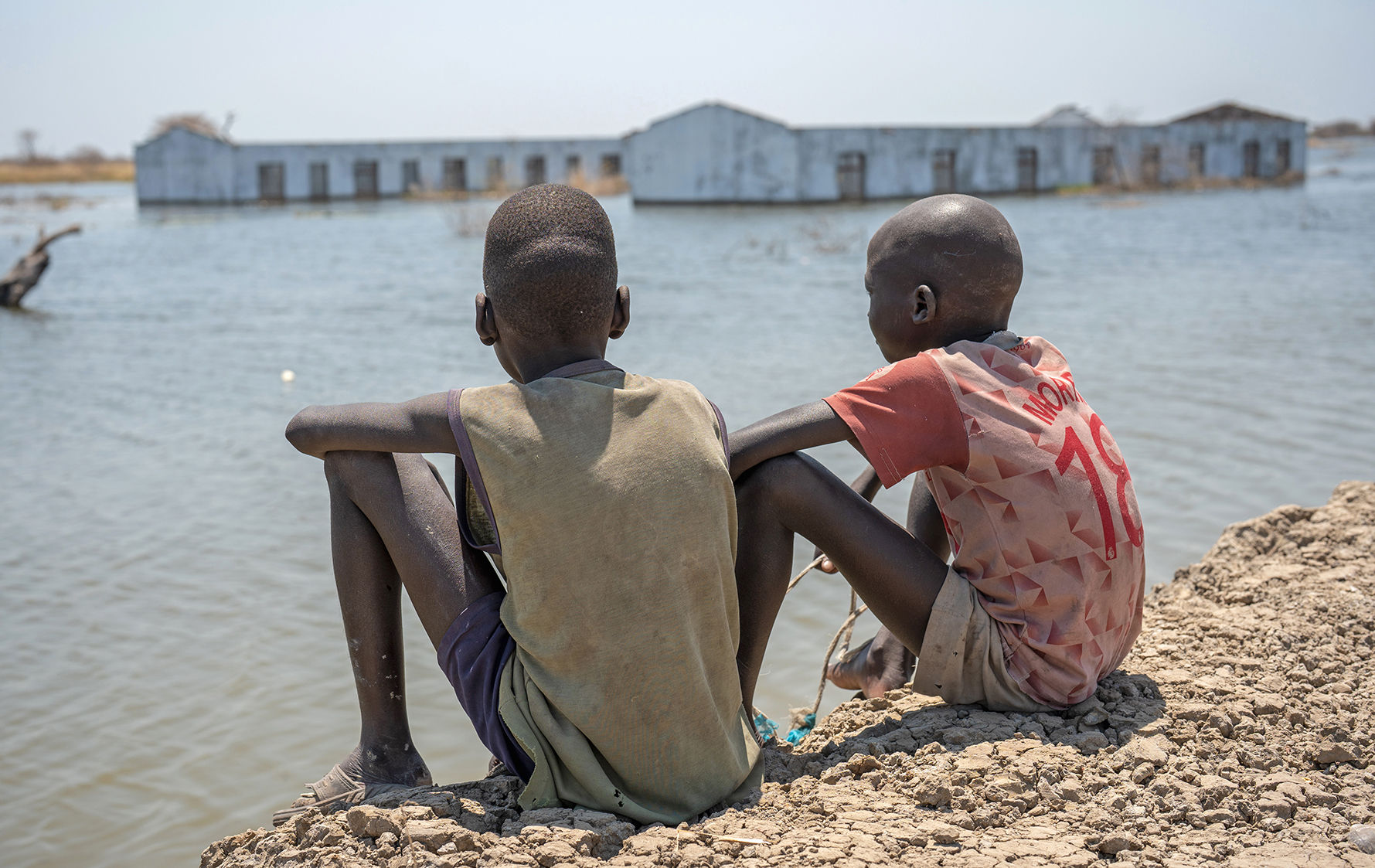
Boys look out over their flooded school in Bentiu, Unity State, South Sudan, March 2023. Extensive flooding has affected thousands of people across Unity State, with many having to flee their homes. (Photo: Unicef / Mark Naftalin)
Like many other people, Anai left the villages for Bor Town with her mother and six siblings.
Anai told Daily Maverick that when her family was displaced it created a sense of hopelessness because they had to start from zero.
Anai grew up in a rural setting where people survive through subsistence farming. When the floods happened, not only did her home and school collapse, but her family’s sheep and cows died, and she moved into an urban setting where people survived from income, not farming.
“We felt like strangers when we came to the town,” she said.
This type of disconnect — although happening in Sudan — is exactly what local researchers and communities found to have happened after the floods in Durban displaced communities
In a report Sutherland co-produced with other researchers and community members from the Quarry Road settlement, they found that place identity and social connections are crucial to survival.
“Those place identities are very important in terms of dealing with risk, vulnerability, and often, in fact, with survival,” Sutherland said. “And so that’s a major impact that we’re gonna see with climate change.”
Despite these challenges, Anai said she hoped that one day she would be able to finish school and be able to live like the urban people that she’d seen driving vehicles and motorbikes, with an income.
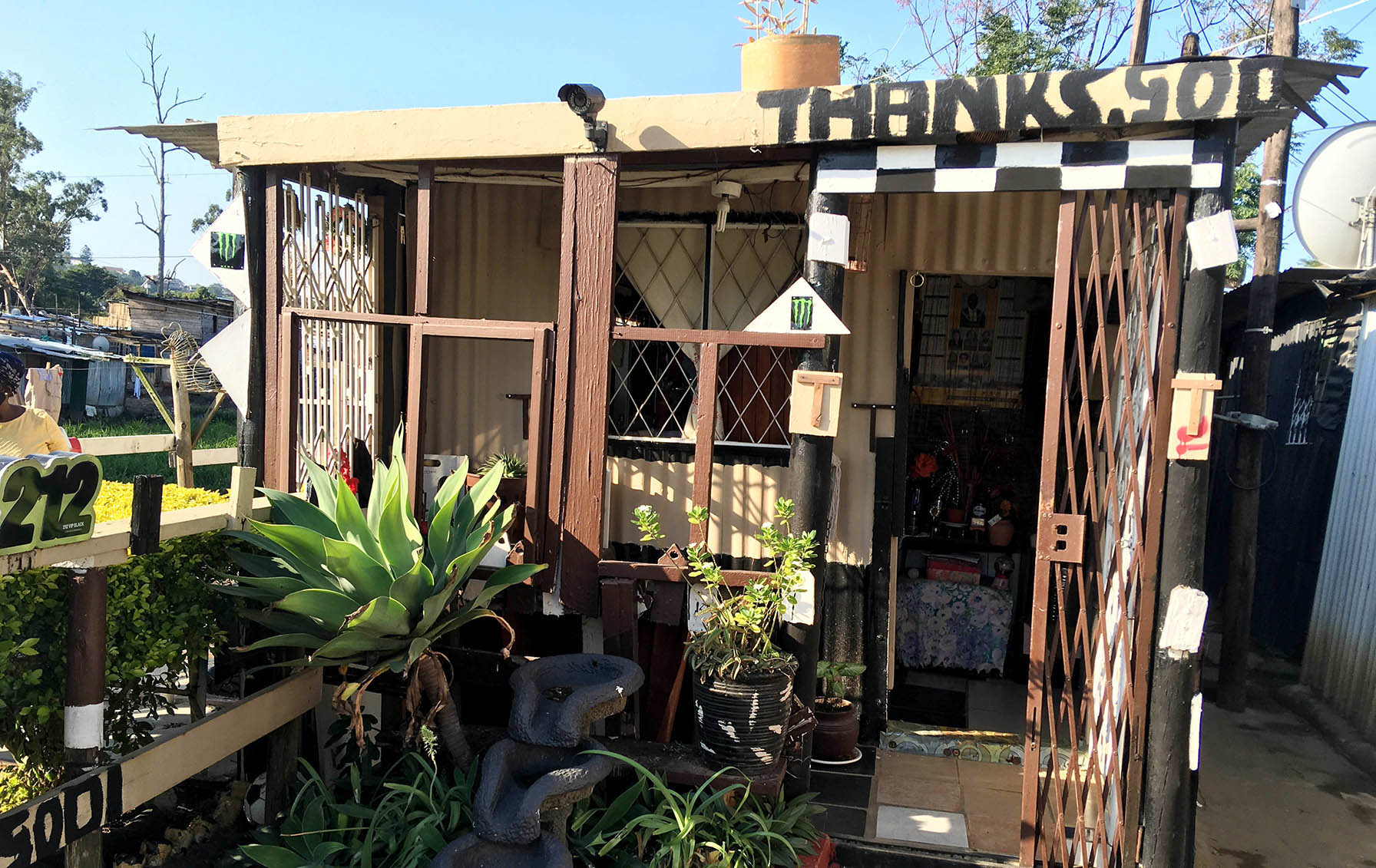
Life in Quarry Road West informal settlement between the 2019 and 2022 floods. (Photo: Cathy Sutherland)
Nomandla’s story
Nomandla Nqanula has been displaced by floods twice — in 2019 she had to move from the Emampondweni section of the Quarry Road West informal settlement across the river to Mcondo 2.
Then in 2022 she lost her home again.
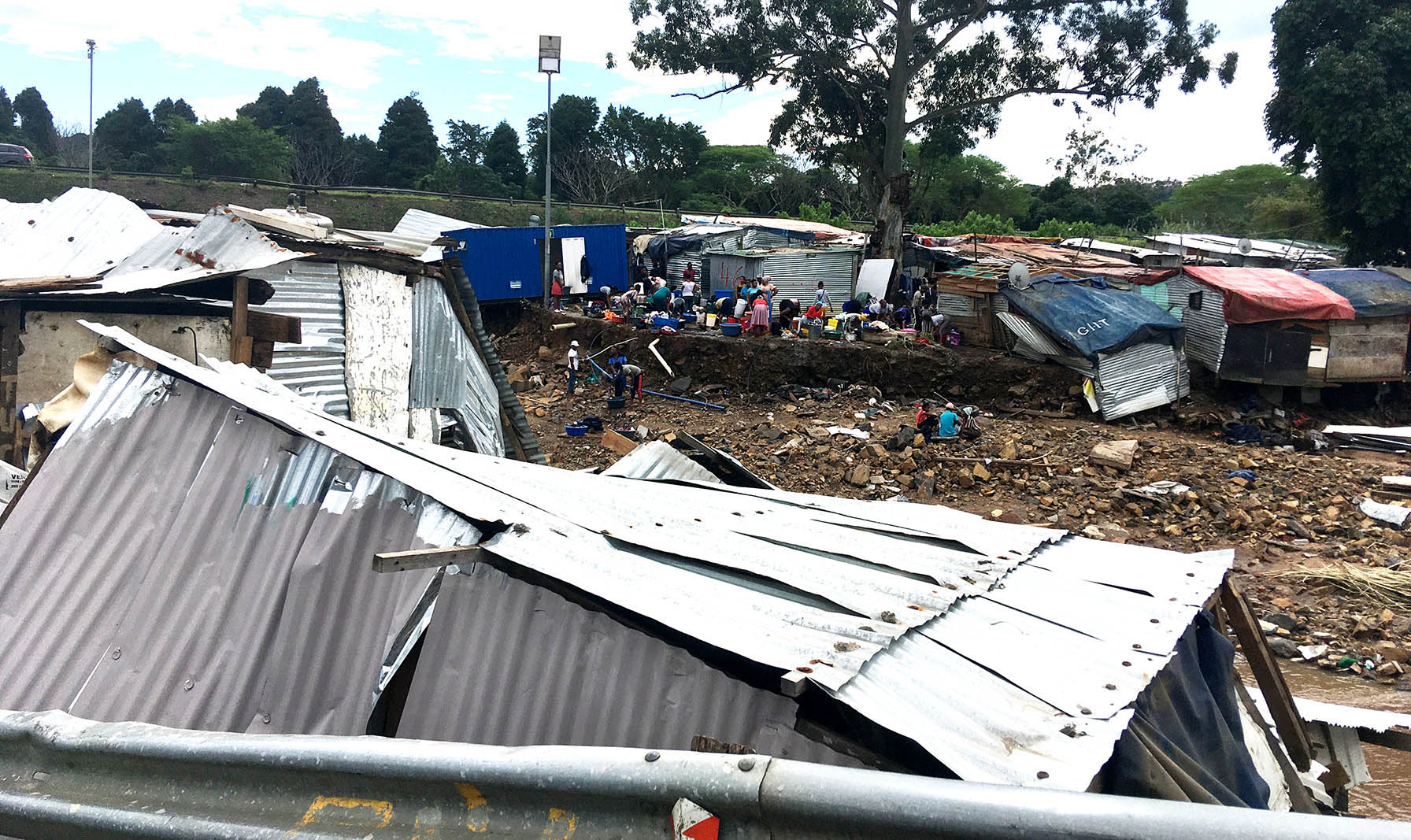
Quarry Road West informal settlement, 12 April 2022. The hole left behind after houses (including Nomandla Nqanula’s home) washed away after the 2022 floods. This area was thought to be safer, but in 2022 the intense rainfall and a blockade of the bridge changed the course of the river. (Photo: Cathy Sutherland)
Sutherland explained that climate displacement occurred even at a very micro scale.
“What happens is that people will lose their land, they’ll move on to open spaces within that settlement, and then as we have more and more climate events, eventually, there’s no space for people to move on to. And so they get displaced out of the settlement.”
Nquanula told Daily Maverick: “People undermine the shacks. But what they don’t understand is that we were born in informal houses. And we grew up in informal housing; we only came here [from rural areas] to look for a better life and try to be independent.”
She said that what was hard for her was losing the sense of respect and freedom she had as a woman having her own house. She had a place for her relatives to stay when they needed to come visit and strong ties to her neighbours.
“You know when this is your home, this is your house. Then the floods took away my independence … and my happiness too; because I was happy, I won’t lie,” Nquanula said.
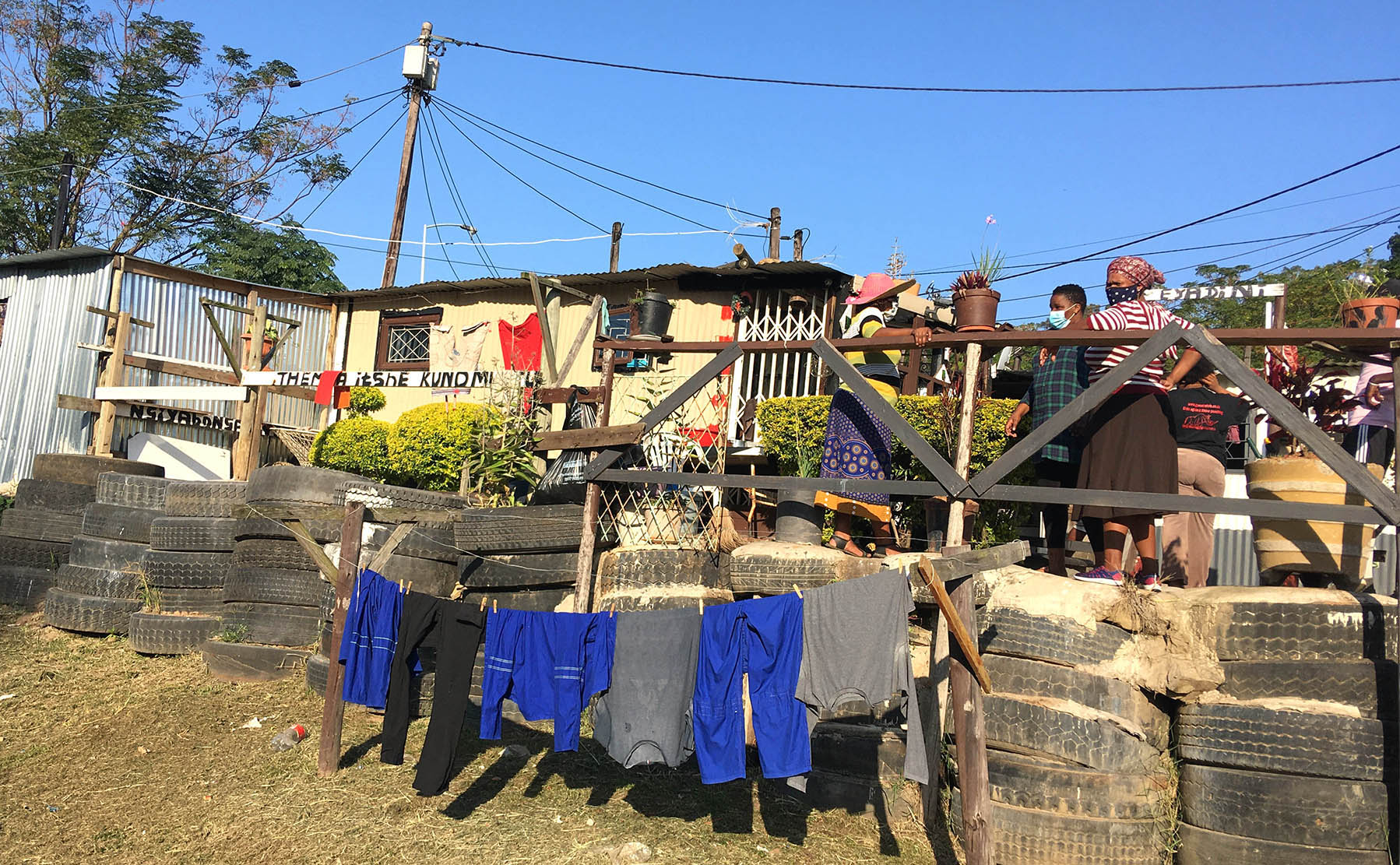
The reestablishment of life in Quarry Road West informal settlement between the 2019 and 2022 floods. (Photo: Cathy Sutherland)
Now she lives in New Germany Road. Although she lived in a shack before, she said the new shack is small and doesn’t have insulation.
“It’s not the same. It will never be the same,” Nquanula reflected.
“There, we were living like we know each other. Here, you are on your own. There we were like family even though we were not coming from the same villages.”
Sutherland explained that informal settlements in Durban are more than 30 years old. “So they’re well-established places. They’re not just new settlements. And so people lose those social connections, they lose their support networks.”
“People have very strong place identities,” Sutherland said, “and they come into urban areas in very difficult circumstances when they first settle in informal settlements, and they often come through connections of people that they know.
“But those connections are the reason that they can survive in the city, and when you have great disruptions to that, it creates even more vulnerability within those communities,” she said.
And in terms of the impact on children, Sutherland said the trauma could be even worse. Not only were they displaced from their home and what they knew, but they were also displaced from a sense of safety and security.
“Most significant is the fear that children carry with them. They get really terrified when it rains,” Sutherland said.
How we prepare
“We have the tools and knowledge to respond to this escalating challenge for children, but we are acting far too slowly,” Unicef’s Russell said. “It is time to prepare communities, protect children at risk of displacement and support those already uprooted.”
So ahead of the upcoming COP28 climate change summit in Dubai in November, Unicef is calling on governments, donors, development partners and the private sector to protect children at risk of future displacement and prepare their communities by:
- Setting up shock-responsible education, health, social protection and child protection services;
- Preparing children and young people to live in a climate-changed world by improving their adaptive capacity and resilience and enabling their participation in finding inclusive solutions; and
- Including young people in climate action and finance, humanitarian and development policy and investments.
“The problem is that people have so few options. Even if the early warning reaches them in time, they have very few means to respond,” Francois Engelbrecht, a professor of climatology and the director of the Global Change Institute at Wits University, told Daily Maverick when tropical Cyclone Freddy hit Malawi and Mozambique in March.
Read more in Daily Maverick: Cyclone Freddy’s deadly trail of destruction a grim reminder of the need to prioritise climate adaptation

In Sofala Province, Mozambique, children walk through a muddy area with containers of food received during a distribution at Tica Relocation Center after being displaced by Tropical Cyclone Eloise, 80 kilometres from the city of Beira, January 2021. (Photo: Unicef / Ricardo Franco)
He said a short-term response was needed, which required building the trust of communities and providing a path out of destruction.
“You really have to have trust in communities. You can’t just tell them, move to this region or this piece of land. You must also give water access, transport, so that they can keep competing for jobs.”
In the long run, Engelbrecht suggested that we needed to make use of international aid mechanisms, under the Paris Agreement, that support climate change adaptation.
“I think already with the current funding streams, there’s much more that can be done,” Engelbrecht said, adding that southern African governments should make climate adaptation a priority.
How do we recover?
“As much as floods are devastating, they also open up opportunities for change,” Sutherland told Daily Maverick as she was on her way to meet the Quarry Road community to build a food garden.
Sutherland said they are building a food garden across the road from where a vegetable seller used to be and plan to set up an indigenous forest and small park where the hole is, to stabilise the land.
This project aims to rebuild place identity, as that area used to act almost as a communal square for the community
“So we’re trying to create a new community space across the road that brings people together through gardening,” Sutherland said.
“Collectively, when we work on urban reform coalitions, we can use the spaces that flooding opened up in different ways to create new opportunities and build new social coalition and collective action,” she said. DM
This story first appeared in our weekly Daily Maverick 168 newspaper, which is available countrywide for R29.

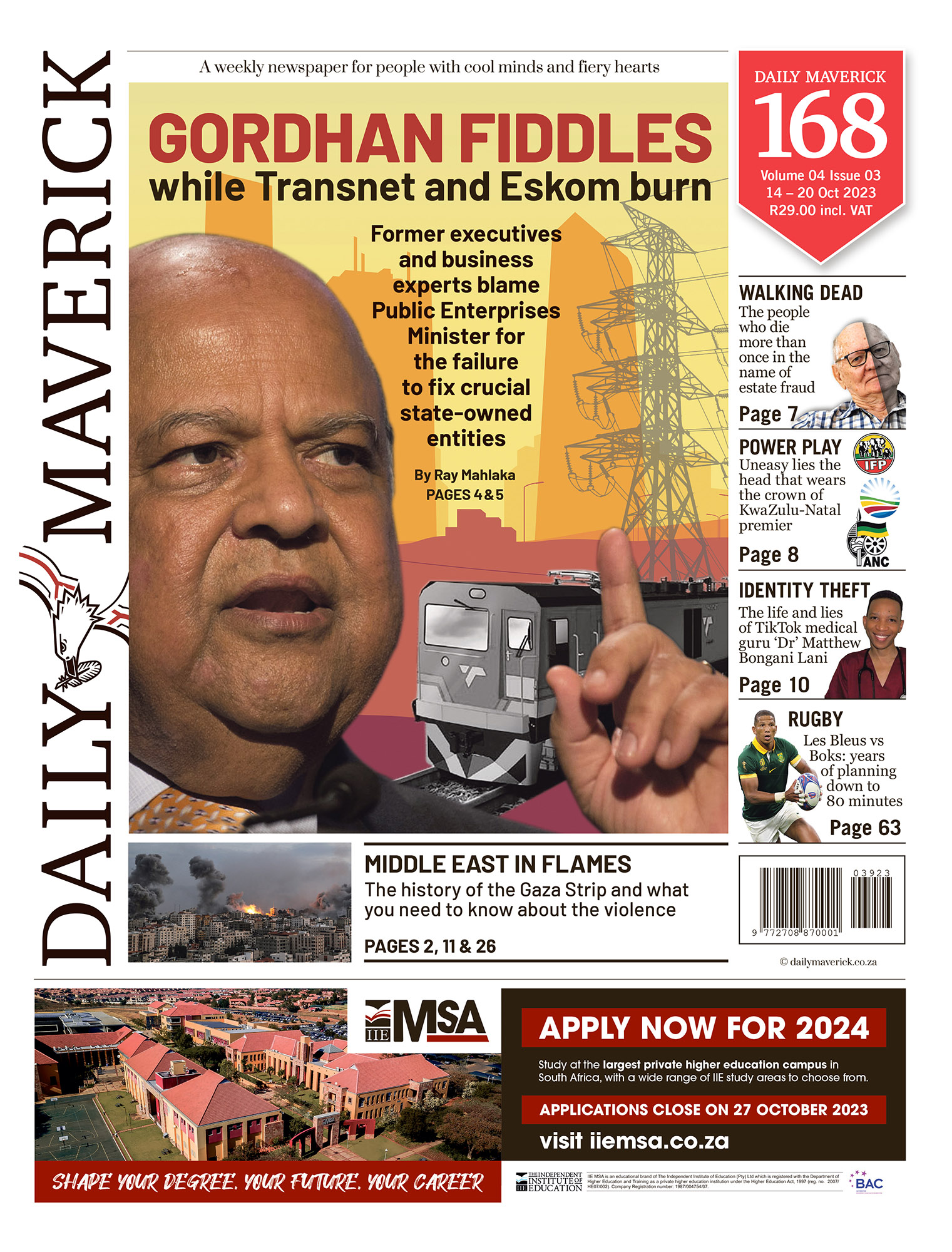


















 Become an Insider
Become an Insider
What nonsense, these floods and the displacement has absolutely NOTHING to do with climate change and everything to do with people destroying the ecosystems in river catchment areas. Take away the trees, vegetation, mangroves and you get ground that erodes and washes away rapidly. Stop with blaming everything on climate change and look at the truth